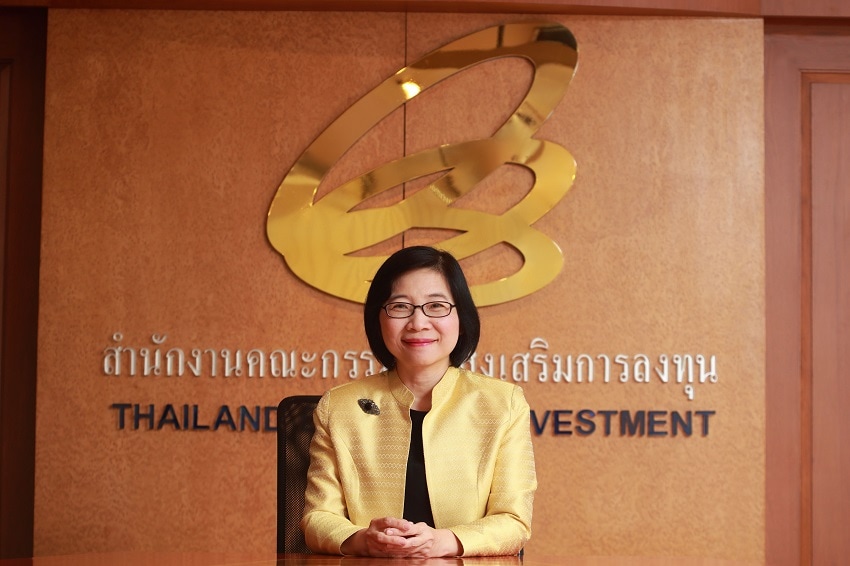Thailand’s supportive investment environment: The key agencies (Part 1)
The operative environment for foreign investors in Thailand is very clear-cut. There are two main entities which provide advice and support, the Thailand Board of Investment (BOI), an agency under the Office of the Prime Minister, and the Industrial Estate Authority of Thailand (IEAT), a department of the Ministry of Industry.
Their role is to promote foreign investment in Thailand by providing information, services and incentives and accompany foreign investors as they venture into the country. The BOI has a generic purpose of informing foreign investors about eligible activities and criteria for investment promotion, while the IEAT is focused on industrial estates, having a more hands-on assignment of managing and operating both IEAT’s own managed sites and industrial estates that are jointly developed by private developers. IEAT therefore imposes specific laws and regulations industrial estates and manufacturers within have to comply with.

Ms. Duangjai Asawachintachit, Secretary General of the Thailand Board of Investment (BOI)
The Board of Investment announced early 2022 that the combined value of foreign and local applications for investment promotion in 2021 totaled around US$ 19.5 billion, an increase of 59%, boosted mainly by foreign direct investments (FDI) in tech sectors and a continued increase in the value and number of projects in Bio-Circular-Green (BCG) industries, as well as the continued buildup of the power generation sector.
Meanwhile, Foreign Direct Investment represented 71% of total pledges with US$ 13.8 billion baht for a total of 783 project applications, a nearly three-fold increase in value from the US$ 5.1 billion worth of applications filed in 2020. The top three busiest industries for foreign investment in terms of approved projects last year were electrics and electronics, petrochemicals and chemicals, and the medical cluster.
In terms of foreign direct investment by countries, Japan is by far the largest investor in Thailand with a combined investment value of approx. US$ 2.4 billion last year followed by China with close to US$ 1 billion in investment pledges and Singapore with US$ 0.9 billion. The Eastern Economic Corridor (EEC), Thailand’s prime industrial area comprising Chonburi, Chachoengsao, and Rayong provinces, attracted the most applications with US$ 6.7 billion approximately, an increase of 34% from 2020.
Last year, The Thailand Board of Investment approved a number of policy measures, namely an extension of the investment acceleration package and EEC incentive package, among others, to stimulate investment to fuel economic recovery, and approved a one-year extension of the existing incentives to accelerate investment in large-scale projects.
Last year, the board approved a series of promotion measures to encourage investments that will reduce impact on the environment, support sustainable development, including low-methane rice farming, machinery upgrades aimed at reducing greenhouse gas emissions and support of eco-friendly activities.
The BOI has also introduced a number of measures and mechanisms to promote Bio-Circular-Green BCG investment, in line with the Government’s policy to declare BCG a national agenda and the core of the Thailand’s post Covid-19 economic recovery. BCG will be one of the main themes for the APEC Summit in 2022 which will be hosted by Thailand. Over the next 6 years, Thailand expect BCG sectors to represent around 24% of GDP. The reasons leading investors to bet on Thailand’s BCG sectors include the fact that Thailand is rich in biodiversity, ranking 15 out of 193 countries, as well as the fact the country has a very competitive food industry, ranking 13th as a food exporter globally. Also attracting investors, are Thailand’s strategic location and connectivity, in the middle of Southeast Asia, and the abundant availability of bio-based materials. According to the BOI, there is around 40 million tons of biomass still being left unused, presenting a great potential in the adding-value chain.
The board also improved investment promotion policy for the electric vehicles (EV) industry, and promotion of electric bicycles.
The BOI has also set a focus on innovative sectors for higher incentives, including robotics, medical technology, electric vehicles, digital technology and innovations in telecommunication, eco-friendly petrochemicals and plastics and food innovation, among others.
Other Articles
Contact us for more details.
+84 251 3991 007 (South)
+84 203 3567 007 (North)
+85 620 5758 0007
© AMATA CORPORATION PCL. All rights reserved. Web by Toneyes







